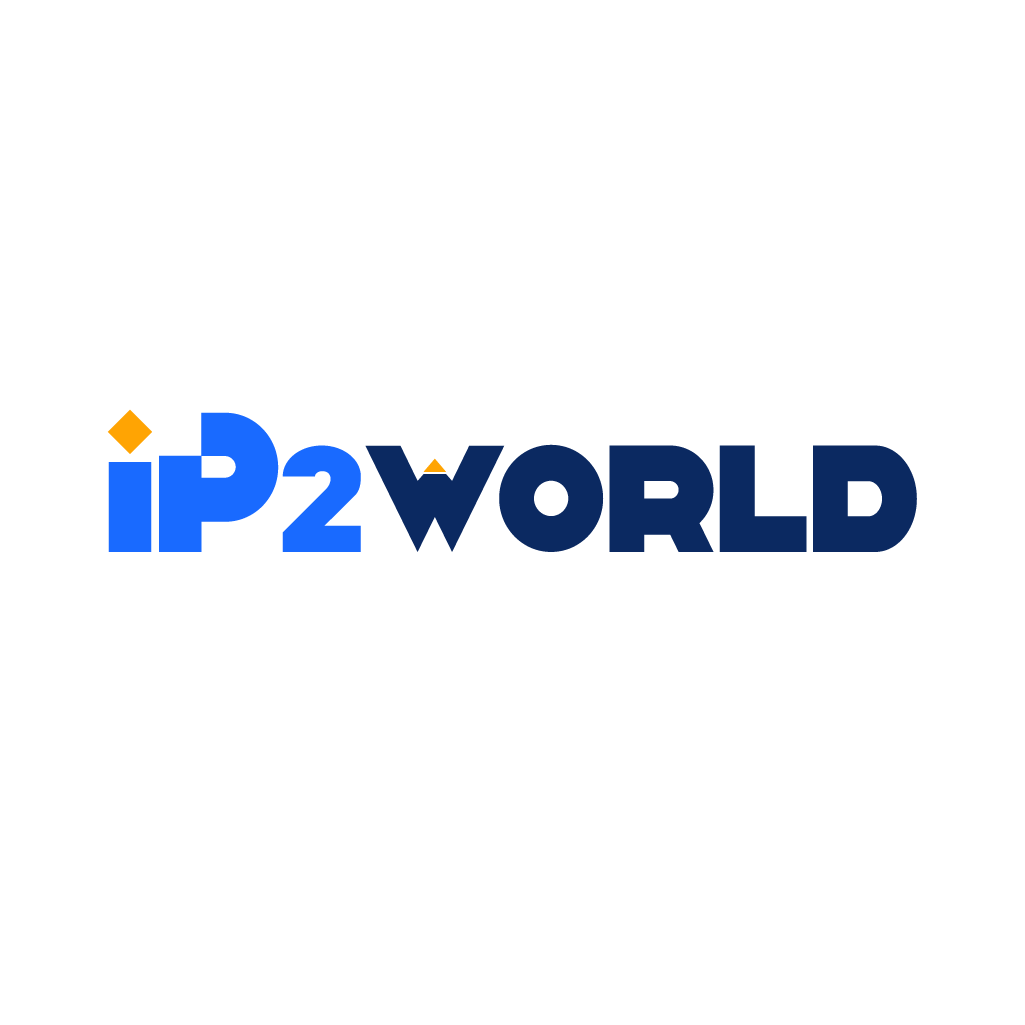In the rapidly evolving world of e-commerce, staying ahead of the curve is not just about having a great product or an engaging website. It's about leveraging every tool and technology at your disposal to gain a competitive edge. One such tool, often overlooked yet powerful, is the use of proxies. This article delves into the multifaceted world of e-commerce proxies, unraveling their types, benefits, and strategic applications. We will explore how residential and datacenter proxies are revolutionizing e-commerce activities, from enhancing data privacy to facilitating global market access and efficient data scraping. Through real-world case studies and insights into future trends, this article aims to equip e-commerce businesses with the knowledge to make informed decisions about proxy usage, ensuring they remain competitive and secure in the digital marketplace. Understanding E-Commerce Proxies An e-commerce proxy, in its most fundamental role, serves as a bridge between a user's computer and the wider internet. This intermediary server not only facilitates but also streamlines various online activities pivotal to e-commerce. The two primary types of e-commerce proxies are Residential Proxies and Datacenter Proxies, each with distinct characteristics and applications. Residential Proxies are known for providing IP addresses that are linked to a real, physical location. This makes them appear as regular internet users to most online services and websites. Such a feature is particularly advantageous in scenarios where trustworthiness and authenticity are paramount. For example, when conducting market research or data scraping, using a residential proxy allows businesses to access information as if they were a regular customer from a specific geographic location. This helps in obtaining accurate and location-specific data, which is crucial for businesses aiming to understand regional market trends and consumer behaviors. Datacenter Proxies, on the other hand, are favored for their speed and efficiency. These proxies are not linked to an ISP but are hosted in data centers. Due to their nature, they offer high-speed connections and are ideal for tasks that require fast response times, such as managing high-traffic websites or handling large volumes of transactions. However, they might be more easily identified as proxies by some sophisticated online services, which is a consideration to bear in mind depending on the intended use. The application of these proxies in e-commerce is multifaceted. They facilitate data scraping, a practice where automated scripts gather large volumes of data from various websites. This data can include product prices, descriptions, customer reviews, and more, which is invaluable for market analysis. Moreover, they aid in market research, allowing businesses to anonymously visit competitors’ websites, analyze their strategies, and gather intelligence without revealing their own identity. Proxies also enable businesses to bypass geo-restrictions, which is crucial for companies aiming to operate in a global marketplace. This functionality allows them to access and interact with content that might otherwise be restricted in their actual geographical location. Benefits of Using Proxies in E-Commerce 1. Data Privacy and Anonymity: In the digital age, data privacy and security are paramount, and proxies offer a robust solution in this regard. By masking the user's actual IP address, proxies prevent unauthorized entities from tracking online activities and accessing sensitive data. This feature is crucial both for businesses that handle customer data and for individuals concerned about their online privacy. Proxies, therefore, act as a shield, keeping the user’s online behavior confidential and securing data from potential breaches. 2. Overcoming Geo-Restrictions: The global e-commerce landscape is dotted with regional barriers and content restrictions based on geographic locations. Proxies serve as an effective tool to overcome these barriers, enabling businesses to access markets and digital content from around the world. This capability is particularly beneficial for businesses looking to expand their reach, enter new markets, or access a broader range of products and suppliers. By using proxies, they can simulate user access from different regions, thus bypassing geo-blocks and accessing a wealth of previously unavailable resources. 3. Competitive Research and Price Comparison: In the competitive world of e-commerce, staying ahead requires a deep understanding of the market and competitors. Proxies facilitate anonymous competitive research and price comparison. Businesses can utilize proxies to discreetly monitor competitor websites, track pricing strategies, promotional tactics, and product offerings without revealing their identity. This stealthy approach to market research allows businesses to stay one step ahead, adapt their strategies in real-time, and remain competitive. 4. Enhancing Cybersecurity Measures: Online businesses are frequently targeted by cyber threats, ranging from data breaches to DDoS attacks. Proxies provide an additional layer of security. By rerouting internet traffic through proxy servers, they help obscure the business’s actual web infrastructure, making it more challenging for attackers to target them directly. Additionally, proxies can be used to manage traffic effectively, reducing the risk of server overload and mitigating the impact of potential cyber-attacks. This enhanced security is invaluable for maintaining the integrity and trustworthiness of e-commerce platforms. Strategies for Effective Data Scraping in E-Commerce Data scraping in e-commerce is an intricate and crucial process that involves extracting large volumes of data from various websites for market analysis, competitive research, and consumer behavior insights. The effectiveness of data scraping largely depends on the strategies and tools employed, with proxies playing a critical role in this regard. Rotating Proxies for Continuous Data Access: One of the fundamental challenges in data scraping is avoiding detection and IP bans from websites. Rotating proxies address this challenge adeptly. By regularly changing the user’s IP address, these proxies prevent websites from recognizing and flagging repetitive access from the same source. This continuous change in IP addresses mimics the behavior of different users accessing the site, thus allowing uninterrupted data scraping operations. Residential Proxies for Authentic Data Collection: Residential proxies, which provide IP addresses associated with actual residential locations, are particularly effective in data scraping. They are less likely to be flagged as proxies by websites and can simulate real user behavior more accurately. This authenticity is crucial for e-commerce businesses that rely on accurate and comprehensive data for market analysis. By using residential proxies, businesses can access even those websites that have stringent measures against scraping, ensuring a more extensive and reliable data collection. Strategic Planning and Execution: Effective data scraping is not just about the tools but also involves strategic planning. This includes identifying the right websites to scrape, determining the frequency of scraping to get the most up-to-date information, and choosing the appropriate time of day for scraping activities to minimize the chances of detection. Additionally, businesses must ensure that their scraping activities comply with legal standards and website terms of service to avoid ethical and legal issues. Improving Customer Experience with E-Commerce Proxies In the realm of e-commerce, customer experience is paramount. Proxies can play a significant role in enhancing this experience in several ways. Overcoming Geographic Limitations: Customers often face restrictions based on their geographic location, limiting their access to certain products, services, or deals. Proxies enable customers to bypass these geo-restrictions, offering them a wider range of choices. For instance, a customer in Asia can use a proxy to access a U.S.-based e-commerce site that otherwise would not have been available to them, broadening their shopping options. Access to Regional Deals and Offers: Proxies enable customers to access region-specific deals and discounts that e-commerce platforms often offer. By changing their virtual location, customers can take advantage of pricing variations and special offers available in different regions, leading to cost savings and a more satisfying shopping experience. Managing Multiple E-Commerce Accounts with Proxies In the competitive e-commerce landscape, managing multiple accounts is a strategy employed by businesses for various reasons, including market testing, diversifying sales channels, or managing different product lines. Facilitating Multi-Account Management: Proxies are instrumental in managing multiple e-commerce accounts effectively. By providing different IP addresses for each account, proxies reduce the risk of account suspension or blocking that can occur due to accessing multiple accounts from the same IP address. This IP diversification is crucial for businesses that rely on multiple accounts to test markets, manage different brands, or conduct A/B testing. Ensuring Compliance and Avoiding Penalties: Many e-commerce platforms have strict policies against operating multiple accounts from the same IP, considering it a violation of their terms of service. Proxies help in complying with these policies by ensuring that each account operates under a unique IP address. This not only avoids penalties such as account suspension but also maintains the integrity of the business's operations. Strategic Deployment for Optimal Results: The strategic deployment of proxies for account management involves selecting the right type of proxy (residential or datacenter), determining the appropriate number of accounts per proxy, and monitoring account activities to ensure they appear authentic. This careful management ensures that the business can leverage the advantages of multiple accounts without facing the common pitfalls associated with such practices. Choosing the Right Proxy Provider for E-Commerce In the dynamic world of e-commerce, selecting the right proxy provider is not just a matter of convenience but a strategic decision that can significantly impact a business's online operations. Proxies play a vital role in facilitating various e-commerce activities, from data scraping and market analysis to managing multiple accounts and improving customer experience. Therefore, understanding and choosing the right proxy provider becomes crucial. Key Features to Consider: 1. IP Rotation Capabilities: A good proxy provider should offer robust IP rotation capabilities. This feature is essential to avoid detection and blocking by e-commerce websites, as it allows for changing IP addresses at regular or random intervals. It helps in simulating the behavior of different users accessing the site, which is particularly important for activities like data scraping and competitive research. 2. Dedicated Proxies: Dedicated proxies provide exclusive use of IP addresses. This means that the IP address is only used by one client at a time, reducing the likelihood of being blacklisted. Dedicated proxies are particularly important for businesses that need a stable and consistent online presence, such as maintaining customer support or managing long-term market research. 3. Sticky Sessions: Sticky sessions are important for tasks that require a prolonged connection from the same IP address. This feature is beneficial for processes that need continuity, such as completing a transaction or navigating through multi-step data extraction processes. Comparing Different Providers: - Businesses should compare different proxy providers based on their reliability, speed, geographic coverage, and customer support.- Check for reviews and testimonials from other e-commerce businesses.- Evaluate the pricing models and check if they align with the business needs and budget. Ethical and Compliance Considerations: - Ensure that the proxy provider adheres to legal standards and respects privacy laws.- Avoid providers involved in unethical practices like using hacked or unwitting users’ IPs.- Ensure the provider has transparent policies regarding data handling and usage. Case Studies: Successful Proxy Usage in E-Commerce Real-world Examples and Strategies: - Global Retailer's Market Expansion: A prominent e-commerce retailer used residential proxies to enter Southeast Asian markets. Initially, they faced challenges due to strict regional online sales regulations and differing consumer behaviors. By using proxies, they presented their website as locally based, which increased trust among regional customers and complied with local online commerce laws. This strategy allowed them to tailor their marketing and product offerings to suit local preferences, resulting in a significant market share increase. - Data Scraping for Dynamic Pricing: An online electronics vendor implemented datacenter proxies to scrape competitors’ pricing data across multiple regions. This practice enabled them to adjust their pricing strategy dynamically, offering competitive rates without compromising profit margins. The proxies ensured continuous access to competitors’ data while avoiding detection and IP blocks. Analyzing Outcomes: - Measuring Success: The global retailer witnessed a 40% increase in sales within the new markets within six months. Customer feedback indicated higher satisfaction due to the localized content and relevant product offerings. The electronics vendor observed a 25% increase in sales volume due to their competitive pricing, directly attributable to their effective use of data scraping through proxies. - Lessons Learned: The key takeaway was the importance of appearing as a local entity to gain consumer trust in new markets. For the electronics vendor, real-time data scraping was crucial in maintaining a competitive edge. Both case studies highlight the strategic use of proxies as a tool for market expansion and competitive intelligence. Challenges and Solutions in Using Proxies for E-Commerce Common Problems and Their Solutions: - Detection by Websites: Rotating and residential proxies help in mimicking genuine user behavior, reducing the risk of detection and blocking by sophisticated website algorithms designed to identify and restrict proxy traffic. - Balancing Speed and Security: Selecting a proxy provider that offers a blend of fast datacenter proxies for high-speed requirements and secure residential proxies for tasks needing higher security can create a balanced approach, catering to diverse e-commerce needs. - Cost Management: Opting for proxy providers with flexible pricing models that suit the business's specific needs can help manage costs effectively. This includes considering pay-as-you-go plans or packages based on data usage. Best Practices for Effective Proxy Usage: - Regular Updates and Adaptation: Keeping proxy settings and configurations up to date is vital to adapt to evolving online environments and maintain effectiveness. - Performance Monitoring: Continuously monitoring the performance and reliability of proxy servers ensures optimal operation and quick adjustments when necessary. - Ethical Use and Compliance: Educating team members on the ethical use of proxies and ensuring adherence to legal standards and best practices is crucial for maintaining a reputable online presence. Future Trends in E-Commerce Proxies Predictions and Emerging Technologies: - AI and Machine Learning Integration: The incorporation of AI and machine learning in proxy services is expected to advance IP rotation techniques and improve detection avoidance strategies, making proxies more intelligent and adaptable. - Rise of Mobile Proxies: With the shift towards mobile e-commerce, mobile proxies are becoming increasingly important. These proxies can replicate mobile IP addresses, offering more authentic browsing experiences and aligning with consumer trends. - Blockchain-based Proxies: The potential for blockchain technology to enhance proxy services is being explored. This could offer unprecedented levels of security and transparency in proxy transactions and operations. Shaping Future E-Commerce Strategies: - Impact on Consumer Behavior: Emerging technologies in proxy services will likely influence online consumer behavior, necessitating e-commerce businesses to adapt their strategies to stay competitive. - Support for New Trends: Proxies will play a crucial role in supporting emerging e-commerce trends like virtual reality shopping experiences or personalized customer journeys, enabling businesses to offer innovative and engaging online shopping experiences. ConclusionThe world of e-commerce is a battlefield where data is the weapon and speed is the strategy. In this context, proxies emerge not just as shields but also as strategic tools that empower businesses to navigate this battlefield effectively. From safeguarding data privacy and anonymity to enabling access to global markets, the advantages of using e-commerce proxies are clear and manifold. As we have seen through various case studies, the successful implementation of proxies can lead to significant business growth and enhanced customer satisfaction. However, as with any powerful tool, the key lies in choosing the right proxy provider and deploying proxies wisely, keeping in mind ethical considerations and compliance issues. As the digital landscape continues to evolve, so will the role of proxies in e-commerce. Businesses that adapt to these changes and leverage the emerging technologies in proxy services will not only survive but thrive in the competitive world of e-commerce.
2023-12-13





